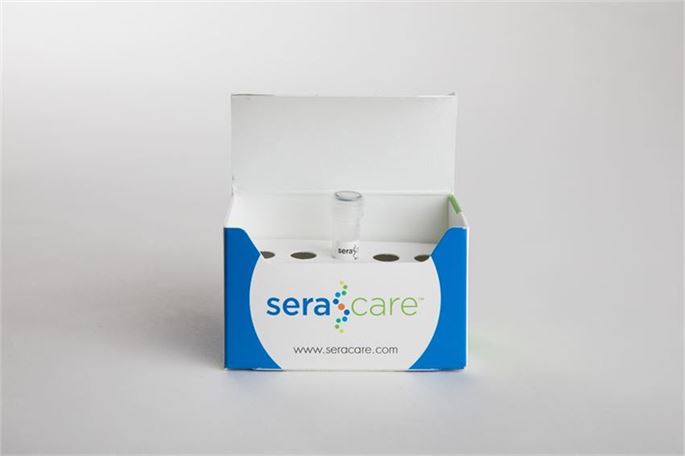Lab Quality Control
Seraseq® FFPE TMB RM Score 26
Details
Resources
Specifications
Frequently Asked Questions
In immuno-oncology, the goal is to enable a patient’s immune system to locate and eliminate cancerous cells. The immune system may normally protect against cancer – except when cancers manage to evade it – since immunocompromised individuals have a higher likelihood of developing cancer. Checkpoint inhibitors, which have recently improved the prognosis for a significant number of cancer patients, work by blocking inhibitory molecules such as PD-L1 and CTLA-4 that may be allowing cancers to evade the adaptive immune system. However, by taking the brakes off the immune system, the use of checkpoint inhibitors is associated with a significant risk of developing autoimmune disease. Additionally, frequently checkpoint inhibitors are not effective.
In order to maximize the safety and efficacy of checkpoint inhibitors, it is beneficial to identify patients who are likely to respond to their use. Since the adaptive immune system can detect changes to proteins, it is thought that the number of somatic mutations that lead to such changes may be correlated with efficacy. The metric of non-silent somatic mutations per megabase of coding DNA has been termed tumor mutational burden (TMB), which has shown some correlation to the efficacy of checkpoint inhibitors. Assessments of TMB are being added to many NGS assays in order to enable their use for patient selection for clinical trials and perhaps later as companion diagnostics. However, it is also known that TMB scores can differ significantly between assays and especially around levels that may be clinical decision points.
To improve and harmonize the measurement of TMB, we have generated and characterized tumor-normal human cell lines with different TMB scores for whole exome sequencing analysis of TMB in patient samples, for validating targeted NGS panel-based TMB assays, and as controls for TMB measurements in I-O clinical trial projects.
The TMB reference materials are available as genomic DNA (purified mix) format and/or FFPE (requires extraction) format, as tumor-normal standards.
FFPE TMB Reference Standards:
Reference standards are made from human lung cancer cell lines at 30% tumor content, formalin-treated and paraffin-embedded into FFPE blocks, which are then cut into 10 µm sections.
- 30% tumor-normal FFPE reference standards
- compatible with a range of FFPE extraction kits
- range of TMB scores
- manufactured in GMP-compliant and ISO 13485 certified facilities
Seraseq FFPE TMB RM Products
Seraseq FFPE TMB RM Score 26
Seraseq FFPE TMB RM Score 26
Seraseq FFPE TMB RM
Seraseq gDNA, ctDNA and FFPE TMB Product Sheet
Seraseq FFPE Safety Data Sheet
Seraseq FFPE TMB RM Score 26
| Product Specifications - FFPE TMB Score 26 | |
| TMB Score | 22.8 |
| Size | 10 µm |
| Format | FFPE |
| DNA Yield* | >100 ng |
*From 1x10 µm FFPE curl using QIAGEN QIAamp FFPE DNA Tissue Kit/Qubit DNA HS quant
Immuno-oncology FAQs
Review the common questions we receive from our customers and the responses we provide.



